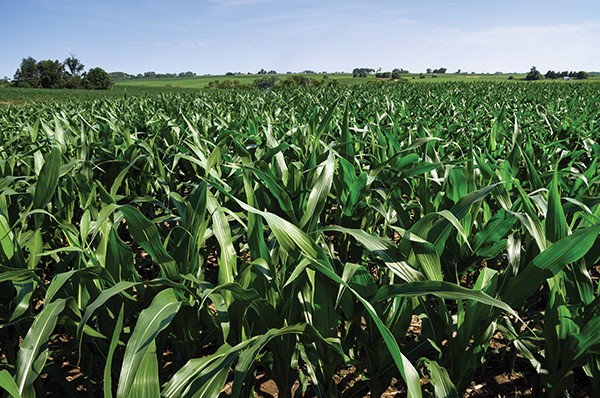With the confetti swept and the holiday credit card statements sent for payment, it’s time to dive into what promises to be a well-fought and civil presidential election season. In just three weeks, we’ll find out which of the 12 (at press time) Democratic hopefuls survives the gauntlet. Who will emerge from a year of hand-shaking and folksy photo ops in Iowa, electability still intact?
That was a trick question. The four candidates who have been leading the whole time will persist, and so will the four billionaires who have no chance. If you had more money than you could ever use, wouldn’t you spend it on a vanity campaign and not something frivolous like, I don’t know, earthquake relief or fighting the Australian wildfires? Guess that’s why I’m not a billionaire.
 Pancaketom | Dreamstime.com
Pancaketom | Dreamstime.com
Candidates of the corn
Iowa’s outsized relevance is one of many baffling traditions that proves this country’s electoral process needs an overhaul. What started as a response to a legitimate threat to democracy in 1968 has become, like the Electoral College and two-party system, “just the way we do things,” for better or worse. The Iowa caucus is like a large-scale version of a New York Times profile of “undecided voters” in a Rust Belt diner. I’m sure they’re all fine people, Iowans. They just don’t deserve the attention.
Iowa has a population of 3.15 million. That’s total. The population is just slightly larger than that of Puerto Rico, a territory that does not even get to participate in the election. Los Angeles has more people than Iowa. New York City has more than twice as many people as Iowa.
Defenders of the state’s vanguard status — most of whom live in Iowa — say the state’s small size allows candidates to interact with voters one on one and sample a slice of real American life. The state is more than 90 percent white, so that slice is more like a sliver. The second state to vote, New Hampshire, is also more than 90 percent white — and even smaller. It’s almost as if this is done by design to preserve the influence of white people in an increasingly diverse electorate!
Iowa doesn’t represent the country electorally, either. In 2016, about 171,000 Democrats and 187,000 Republicans voted in Iowa’s caucuses. The winners, Hillary Clinton and Ted Cruz, won 50 and 27 percent of the delegates, respectively. Neither candidate won the general election, not that any of us need to be reminded.
In fact, the Iowa caucus has correctly picked only three first-term Presidents: Jimmy Carter, George W. Bush, and Barack Obama. Bill Clinton got less than three percent in 1992. He came in fourth place, two spots below “Uncommitted.” Yikes. A real barometer, that caucus.
As much as I enjoy watching middle-aged dudes try to look natural while eating a corn dog, the state fair butter-cow shtick is played out. Kamala Harris ate a pork chop with her bare hands, and she’s not even in the race anymore. Joe Biden didn’t eat anything: How is he even competitive? As political views go, “Wow, that candidate really humiliated himself. He wolfed down that turkey leg like a pro. I bet he’d show Vladimir Putin who’s in charge” is just as misguided as “The ‘You’re Fired’ guy really tells it like it is.” Maybe that’s just who we are.
I understand primary season is a huge windfall for the state. Des Moines’ tourism board estimates $11.3 million in economic impact in the week leading up to caucus day — and that’s just Mike Bloomberg’s ad spend. (Did you hear? He Will Get It Done.) But if the primaries were really small-D democratic, every state would be voting on the same day — preferably one that isn’t nine months from Election Day. Let’s do the whole primary on Super Tuesday. Iowa voters no doubt take their caucus seriously, but media buyers and TV pundits are the only other Americans benefiting from this exhausting slog.
Jen Clarke is a digital marketing specialist and an unapologetic Memphian.